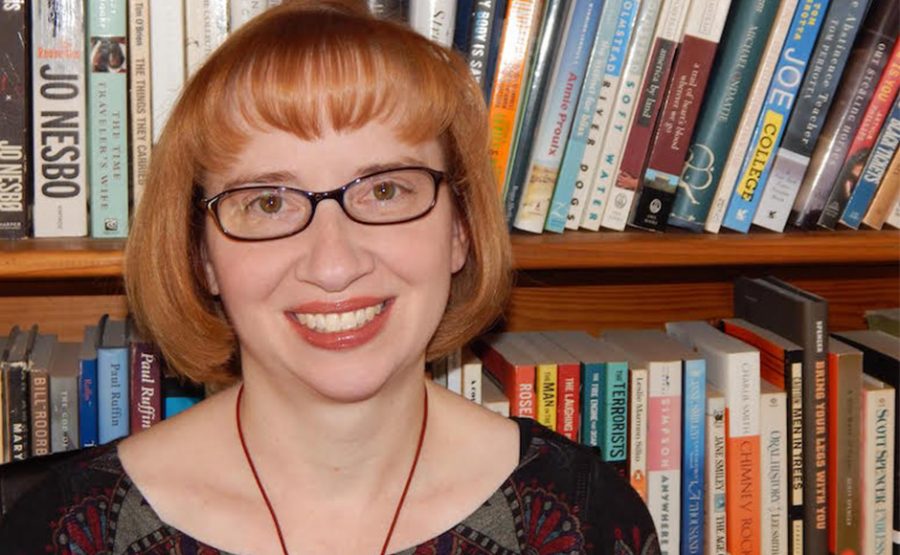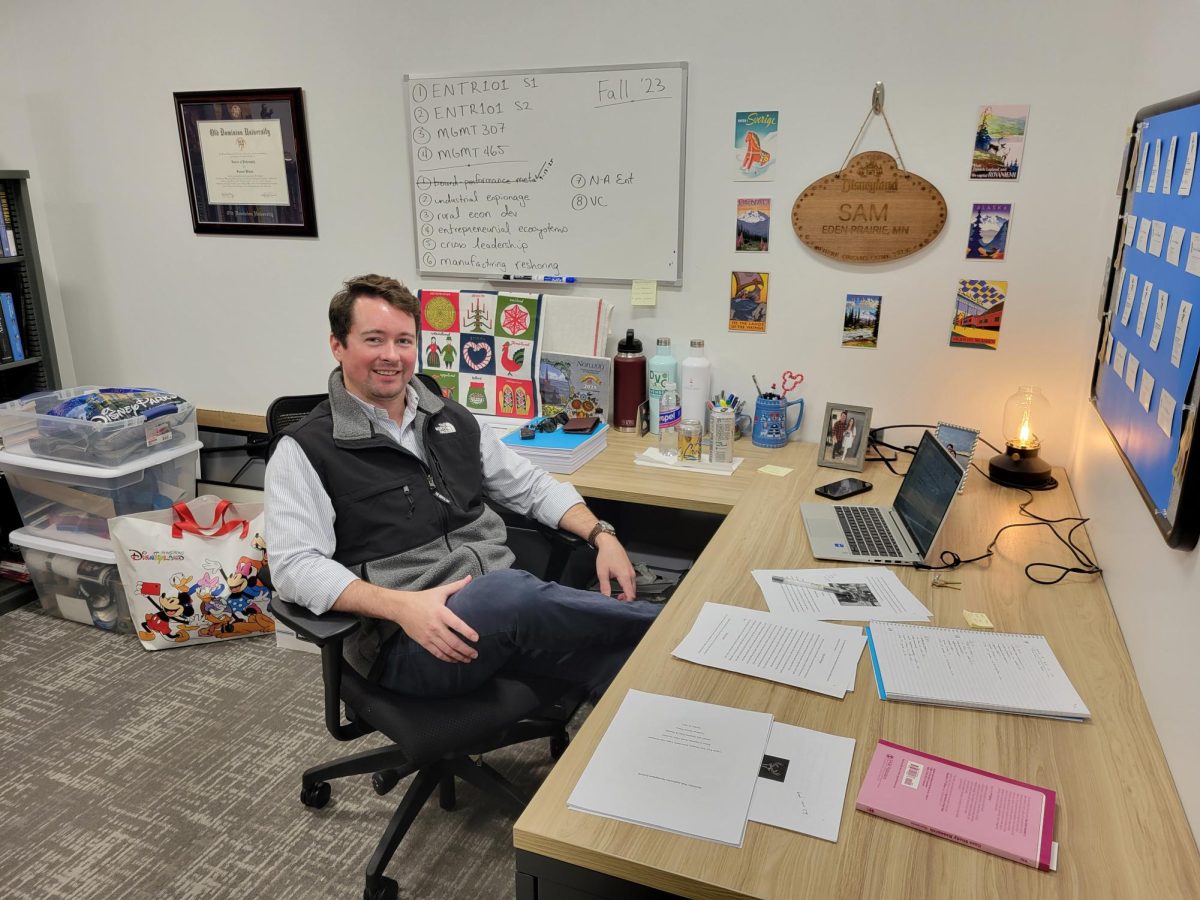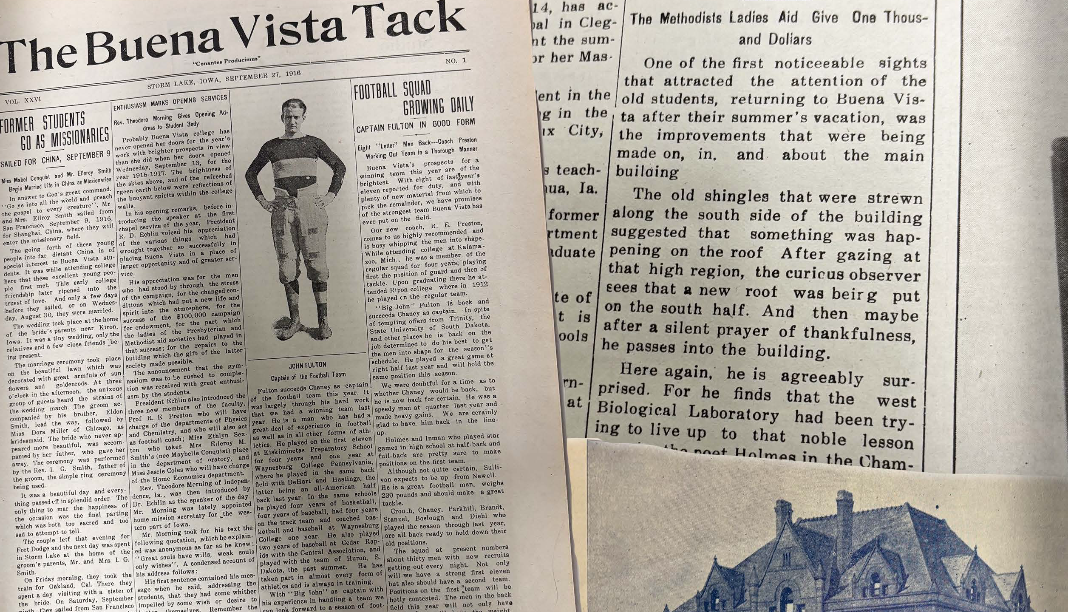Abigail Fellin | Contributing Writer
“Because I fell in love with poetry, my mother sighed and said that I was doomed to work at a cosmetics factory, naming lipsticks.”
These are not only the first couple lines of Dr. Gwen Hart’s poem “The Empress of Kisses,” but also a running joke between her and her mother.
“This was kind of inspiring, because like I say, ‘I glimpsed my future–nothing could eclipse/ a thousand kisses from a thousand lips.’ Instead of being something detrimental it was like whoa, what would it mean to be able to name all of the colors and all of the kisses? What would it be like to be the center of that?” Dr. Hart said.
Dr. Gwen Hart, associate professor of English at Buena Vista University, has accomplished what many writers set out to do but few finish because of the demands of daily life. She is publishing a book of poetry.
Hart’s desk is stacked with textbooks and novels with loose papers sticking out at odd angles. There is a space carved out of the forest of papers that her laptop fits snugly into. Among these stacks, sits a copy of her manuscript, “The Empress of Kisses.” A black binder clip holds the sixty some odd pages together. There are few red editing marks scattered throughout the document, final touches before it’s published on April 15, 2016.
Hart worked for several years on writing and arranging her collection of poetry to submit to the X. J. Kennedy Poetry Contest through the Texas Review Press this past July. It was after 9:00 p.m. on a Sunday night in September when Hart received the call that she had won the contest.
“The phone rang, and I didn’t recognize the number, so I didn’t pick it up,” Hart said, readjusting her dark framed glasses.
When she realized it was the editor of Texas Review Press who had called, she believed she was simply a finalist, not the winner. Hart says she was shocked to hear back so quickly, but was excited when learning of her achievement.
Wining the X. J. Kennedy Prize is ironically fitting for Hart. When she was in elementary school, her mother had bought her a X. J. Kennedy poetry book for kids, after she wrote a forty-line poem on Pompeii. Hart and her mother would work in the book together, and it was this that solidified her love for poetry.
Hart was first published in high school, and since then has been published more than 60 times. She has two chapbooks, over 50 poems published in literary journals, and another book of poetry, “Lost and Found.” Despite this high number of publications, Hart says being published hasn’t lost the appeal or excitement that comes with it.
“Even though I’m proud of and I’m happy about the things I’ve done in the past, I’m always more interested in whatever I’m working on right now. That’s the thing that has energy for me, and I’m excited for what they could become,” Hart said.
It is this idea that motivates her to keep writing. Hart writes year around, keeping herself busy with revision during the school year and plunging head first into new projects over the summer months. She says the trick is to never stop writing, and say it is all an experiment. Thinking of it this way relieves pressure off her while writing, so she doesn’t think it has to be perfect.
“Once I went through my notebook and did a little research. I discovered that only one out of 10 pieces I start ends up being worth something. A pessimist might say these are terrible odds, but as an optimist, I got really excited, thinking if I just keep writing, eventually I will get to another good poem or story!” she explained.
It is this enthusiasm and love for writing that shines through as Hart talks about writing, and especially while teaching writing to others. Madison Hoyt, a student of Hart’s, says it is obvious in class she is passionate about creating poetry and seeing what others create as well.
Poetry is not a popular medium in today’s society. Hart is one of the first to admit there is no money in poetry; however, she doesn’t think it is a dying art either.
“The reality is that you’re probably not going to make a lot of money writing poetry or writing short stories, but that doesn’t mean that nobody’s doing it,” she said. “This is people using their time and resources to do this things. Clearly it’s not dead.”









